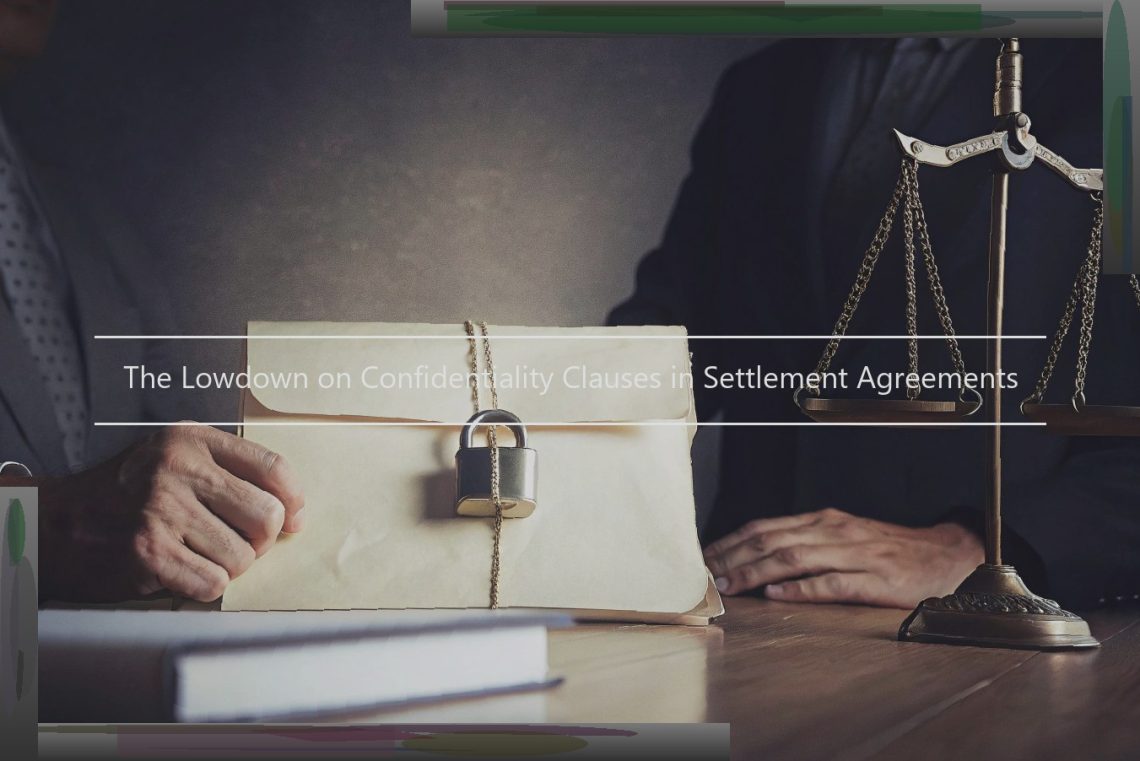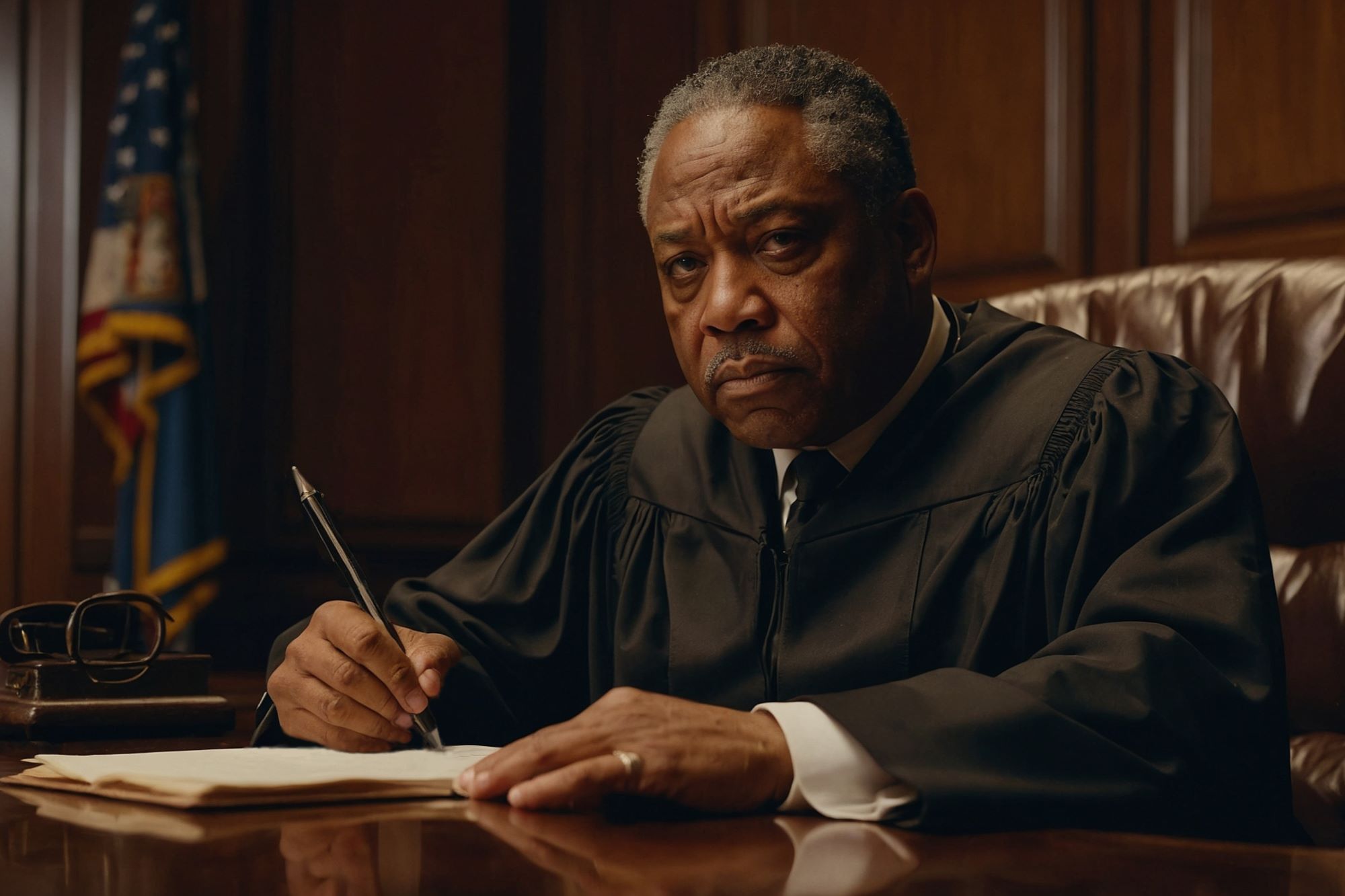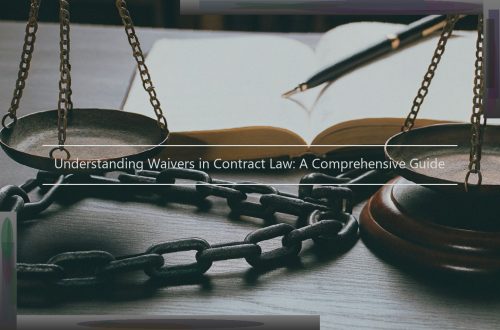
The Lowdown on Confidentiality Clauses in Settlement Agreements
What’s a Confidentiality Clause?
A confidentiality clause is an agreement by individuals or entities not to disclose and in some cases not to use confidential information provided by the other party. Confidentiality clauses are common in a number of scenarios, frequently in settlement agreements. In this context, the parties may agree that they will not disclose the settlement terms to others, particularly non parties or the public. The clause may also prohibit the parties from using the terms of the settlement to disparage each other in the future. A confidentiality clause may also be included in a settlement negotiation as part of the overall settlement agreement .
Confidentiality clauses may vary in their drafting, from including the names of the parties to reference to "the parties." It is important for the drafting parties to determine what information is to be covered and how broadly or narrowly the information is to be defined within the confidentiality clause. The use of the phrase "all related persons or entities" is a common inclusion in a confidentiality clause in a settlement agreement, but it would need to be clearly defined in the agreement so that all parties are clear who or what is included as a "related" person or entity.
Key Components of a Confidentiality Clause
When drafting a confidentiality clause, the parties may focus on the subject matter that is to be kept confidential. In addition, it is important to consider what form the confidentiality will take and whether there might be exceptions to it.
Among the terms and conditions that are typically included in a confidentiality clause are:
Objective
Is the purpose of the confidentiality clause to preserve the integrity of the settlement, to protect a defendant against future lawsuits, or to protect one or all of the parties from self-incrimination?
Comprehensiveness
Meaning is the confidentiality clause intended to cover any information that could be used to identify the parties to the settlement? To protect general knowledge about the dispute? What aspects of the settlement (monetary, non-monetary, or a combination of both) are covered by the confidentiality clause?
Exceptions
Will the confidentiality clause contain exceptions to allow disclosure under certain limited circumstances? These limited disclosure provisions are not uncommon. Common examples are disclosures to accountants, tax advisers, or legal counsel to report on the settlement without revealing the terms; disclosure that is required by law; and disclosure to carry out the terms of the settlement agreement, for example, by a disclosing party or a mandatorily-disclosed third party.
Notwithstanding the parties’ intent that a confidentiality clause cover a great deal of information, it should be noted that even in an expansive confidentiality clause, "exceptions to the confidentiality requirements should be as consumptive as possible." See, In re Union Carbide Corp. and NRC and N.C. Utilities Commission, 410 S.E.2d 398, 412 (S.C. 1991). This is especially so if the parties’ confidential information and sensitive information is so entangled that a redaction of confidential information would not sufficiently vindicate the plaintiff’s right of access.
Collaterally-Related Clauses
What related clauses will also include confidentiality provisions, such as admissions and waiver of claims, laws of agreement, filing of documents, confidentiality of documents, entire agreement, obligations of parties and execution/acknowledgment?
Legal and Enforceability Considerations
Confidentiality clauses in settlement agreements are generally enforceable in the UK. Such clauses make a settlement agreement enforceable, in the sense that they prevent a settlement agreement either being disclosed or relied upon for its terms. Typically, the party claiming that the settlement agreement should be enforced would ask the court to prevent the other party from disclosing the settlement agreement.
In most cases the breach of a confidentiality clause would be the subject of a claim for damages, and an injunction would be granted to prevent any planned disclosure. Breach of a confidentiality clause may additionally be contempt of court, if the settlement agreement was made subject to the court’s approval.
The court would look at any public interest issue in any planned disclosure, for example, as to the conduct of the person giving the confidentiality undertaking, in deciding whether or not to grant an injunction. The court might decide that a party has a right to disclose a confidentiality clause in order to address allegations of fraud, violence, harassment or other criminal activities. On the other hand, if a confidentiality clause arose from a consent order, the public concern would be to protect the integrity of the court and there would be no public interest in disclosing the terms of that consent order.
The court would also take into account the extent of the breach, the harm that may be done to either party by any disclosure, and the extent of the benefit to onlookers by disclosure. If the breach has already occurred, the court may refuse to grant an injunction but will make an assessment of the damages suffered. Such damages may include any reputational damage or other personal distress suffered by the party in breach of the confidentiality clause. Again, the question of public interest would be a consideration.
Even if the court refuses to grant an injunction, that does not mean that it would hold that there was no breach of the confidentiality clause, and so the breaching party would still be required to pay damages.
An agreement that is prohibited by public policy is unenforceable. However, the position in relation to public policy is often not clear. A provision may be prohibited by public policy even if it is not unlawful. It is well-established that a restrictive covenant that has no limit in time is unenforceable in the UK. Matters of public policy may also change over time. In the Twenty20 cricket match-fixing scandal, players breached their contracts with the England and Wales Cricket Board by participating in matches that they had agreed to play in on the basis that they had been paid to do so; nonetheless the players were not subject to further contractually-imposed restrictions on playing as a result of their breach of their contracts. In R v Mattocks [2019] EWCA Crim 577, the Court of Appeal indicated that reversal of a prenuptial agreement that was contrary to public policy would require a clear shift in the law.
Pros of Including a Confidentiality Clause
A confidentiality clause benefits both the plaintiff and the defendant. For the plaintiff, confidentiality protects the plaintiff from harassment which can be an issue if a business knows who the plaintiff is. When the plaintiff signs a confidentiality agreement, it also prevents the plaintiff from revealing information which can cause harm to the defendant. There have been instances where settling parties have leaked information as to what the settlement terms are or how much the defendant paid. Defendants fear that once they settle, the plaintiff will turn around and try to improve on the deal, which will then create a bad deal for the settling party. Because the parties want to keep confidential how much money was paid and how a case turned out, it becomes a lot less likely that settling in a lawsuit will be the impetus to file another lawsuit against the defendant.
Potential Downsides, Options and Critiques
Confidentiality clauses, while valuable, are not without their potential drawbacks and criticisms. Their lack of transparency can, at times, limit public oversight and scrutiny of settlement agreements. This lack of transparency can, in turn, hinder the proper functioning of the courts. The courts, and public prosecutors, as well as the media, need access to information about serious wrongdoing to prevent it from occurring again. There also appears to be a lack of consistency in the case law dealing with the issue of confidentiality clauses, drawing criticism for inconsistent approaches to whether parties can enforce settlement agreements that prohibit the disclosure of allegations of serious wrongdoing.
Furthermore , confidentiality clauses can pose limitations on future litigation. For example, a confidentiality clause may impact the ability of parties to present evidence in future proceedings. This is particularly relevant in ongoing criminal, regulatory, employment or civil matters. The inclusion of a broad confidentiality clause in the absence of any supporting justification or circumstances may invite criticism that the parties are seeking to prevent the truth from coming to light or otherwise obstruct the public interest in knowing the true facts. Furthermore, such criticisms may be more pronounced where the subject matter of the agreement concerns issues of law or public policy that are relevant to the public and should be known.
Examples of When Confidentiality is Expected
A confidentiality clause can be appropriate in a variety of circumstances. In most cases, the definition and duration of the clause will turn on the particular sensitivity of the information disclosed during settlement discussions.
One situation frequently involving sensitive information requiring confidentiality is that of employment disputes. Particularly with executive employment agreements, managers and similarly situated employees often have access to privileged information regarding intellectual property, trade secrets, product development, corporate strategy and other sensitive and valuable information. Both employers and employees have a great interest in keeping such information confidential in order to preserve its value and to prevent competitive damage.
Civil and commercial division cases also frequently involve disclosure of confidential information and materials and require confidentiality agreements as part of settlement negotiations. These include agreements concerning compensation formulas, proprietary formulas and processes, supplier and vendor pricing, and other similar matters. In addition, cases on personal and real property often involve confidential information regarding the physical condition of property, including the presence of contamination, hazardous materials, and problems with the way premises are maintained or managed.
How to Draft an Effective Confidentiality Clause
In addition to defining confidential information and who the parties to the agreement are, it is best practice to specifically identify the parties that should maintain confidentiality. Best case scenario is to ensure all parties maintain confidentiality. That is not always realistic. If it is not realistic, another option is to ensure that confidentiality is maintained by those who are most likely to breach confidentiality, such as employees, agents, attorneys, accountants, and advisors.
A strong confidentiality provision will also specify how confidential information is to be maintained. So whether confidential information can be translated into other languages, emailed, stored electronically or must otherwise be handled, it should be covered. Where a resolution agreement is being made a part of the court record, it is also advisable to include a provision stating that if the agreement is filed with the court, that the agreement itself is confidential and is not part of the public record. It is important when drafting a confidentiality provision that you draft it in such a manner that it covers as much ground as possible, not only in determining what is confidential but also how the confidential information is to be handled.
To avoid ambiguity, it may be helpful to draft sample language covering issues such as permissible disclosures. For example, permissible disclosures may include: This is just a short list of what may be permissible depending on the context, but it is important that the list be tailored to your specific facts.
Remember, what is proposed above are just a few suggestions or considerations that I have found helpful in my practice. As with all drafting in an agreement, the language must be tailored to fit the needs of the parties and the needs in the specific situation.
Confidentiality Clause Case Examples
Johns v. HMA, Inc., 400 F. Supp. 2d 576 (W.D. Okla. 2005): In this EEOC action, the Court found that a settlement agreement containing a non-disparagement provision would not allow the EEOC to act as part of the public interest in enforcement of the ADEA as its powers were intended. This was due to the lack of information the EEOC would be able to acquire through its own investigation.
HIC Enterprises , Inc. v. Lee, 647 So. 2d 1135 (Miss. 1994): The Court held that an agreement to maintain confidentiality was not enforceable since the parties would only be walking away from the "self-righteousness" of a wrongful dismissal claim and fines under the statute should continue to be a deterrent to such discrimination.



